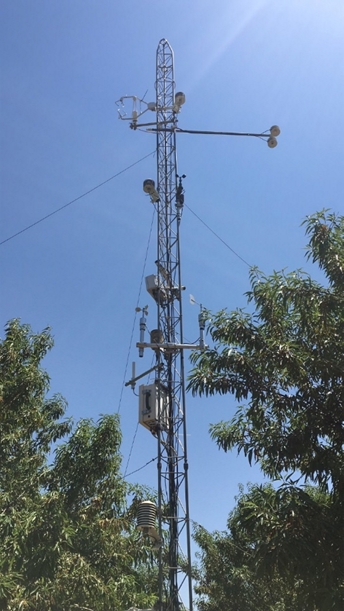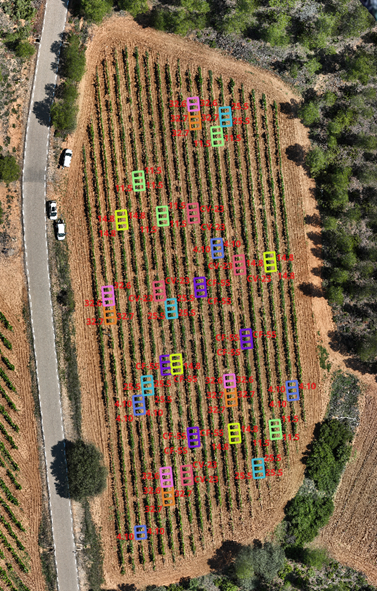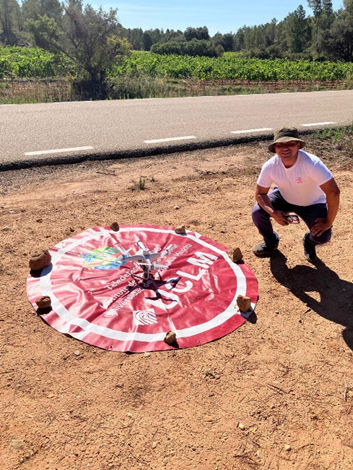On September 20, 2024, an Associated Unit (AU) of R+D+i of the University of Castilla-La Mancha (UCLM) has been created with the Desertification Research Centre (CIDE), a joint center of the Spanish National Research Council (CSIC), the University of Valencia (UV) and the Generalitat Valenciana (GVA). The aim of this Unit is to strengthen synergies that will allow progress in scientific-technical knowledge on a more efficient and sustainable management of crops in general, and irrigation water in particular, in a scenario of global change. At the same time, it seeks to promote the transfer of knowledge to the productive sector.
The UCLM, through three research groups: “Remote Sensing and GIS”, “Agronomy and Water Engineering”, and “Agroforestry Precision and Cartography” and the CIDE, through two research groups: “Water and Crops” and “Remote Sensing and Global Change”, have collaborated in numerous research projects with the main objective of improving water use efficiency and sustainable water management in agriculture in areas with limited water resources.
Researchers from both institutions make up a multidisciplinary group (agronomic engineering, physical sciences, biology, etc.). ) that allow addressing the problem of water scarcity and the need to make a more sustainable use of water, through different academic disciplines, such as: Atmospheric Sciences (determination of Evapotranspiration), Meteorology (Agrometeorology and Micro-meteorology), Biology (Ecophysiology of plants), Mathematics (modeling and optimization), Economics (profitability of farms), Engineering (design and management of irrigation systems) and Physics (Remote Sensing). The research of all the groups involved is aligned with the regional, national and European R&D&I smart research elements, which underpin sustainability and climate change strategies or the incorporation of digitalization in an economic sector as relevant as agriculture.
The objectives to be achieved by the partnership are:
-Integration of Remote Sensing capabilities in land surface monitoring, and in particular of vegetation cover, as well as in the identification of irrigated crops and water accounting.
-To design Web-GIS platforms and applications to support the management of information provided by remote sensing, as well as Spatial Data Infrastructures integrated in management elements.
-Apply the most recent advances in disciplines such as environmental physics, hydrology or micrometeorology, for the improvement of water and energy balances, in order to achieve a better understanding of water and carbon exchanges between the surface and the atmosphere.
To develop multi-criteria models for decision support in the management of irrigated farms, in a context of precision agriculture.
-To optimize models and tools for the design and management of pressurized irrigation systems, integrating criteria from irrigation engineering and agronomy.
- Establish deficit irrigation strategies that maximize irrigation water productivity in farms with limited water resources.
- Improve efficiency in the water-energy nexus in agriculture.
- Assist in hydrological planning and management, assessing resources and demands, enhancing public participation and technology transfer.
- Study the effects of cover crops, such as the use of pruning residues as organic mulch and the use of spontaneous vegetation or a mixture of grasses and legumes between rows of plants in fruit orchards and vineyards, on water and energy balances in a current context in which the Common Agricultural Policy foresees measures aimed at promoting carbon farming, climate and environment friendly schemes (Eco-schemes).
CIDE research staff:
-Ramón López-Urrea (Lead Researcher)
-Diego Sebastiano Intrigliolo Molina
-Aleixandre Verger Ten
Research Staff of the UCLM unit associated with CIDE:
-Juan Manuel Sánchez Tomás (Lead Researcher)
-José González Piqueras
-Miguel Ángel Moreno Hidalgo
-Alfonso Domínguez Padilla
-Ángel Martínez Romero













